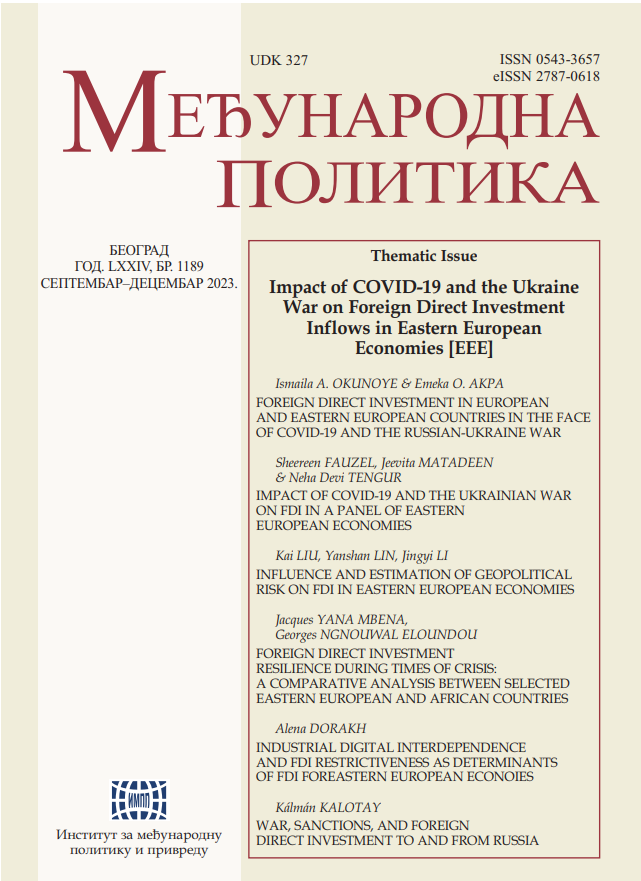Индустријска дигитална међузависност и рестриктивност као детерминанте страних директних инвестиција у источноевропским економијама
Industrial Digital Interdependence and FDI Restrictiveness as Determinants of FDI for Eastern European Economies
Author(s): Alena DorakhSubject(s): Economic policy, International relations/trade
Published by: Институт за међународну политику и привреду
Keywords: COVID-19; FDI Restrictiveness Index; Semiconductors; Export Control; FDI Screening Mechanism; Chinese Investment; Electric Vehicle (EV) JEL Classification; F15; F21; F23; O52.
Summary/Abstract: In the time of industrial supply chain redesign due to COVID-19 and geopolitical risks, Eastern European Economies (EEE) can benefit from their strategic location and interdependent and interconnected manufactured structure to attract foreign direct investment (FDI), particularly in the semiconductor industry. As EEE emerges in the global semiconductor supply chain, they must balance FDI attraction with enhanced national security restrictions. By analysing the patterns of FDI inflows for 20 EEE over 2003– 2022, developing interdependence industrial indices, and assessing FDI restrictiveness, we find that the combination of higher trade interdependence in electronics industries, European integration, and more favourable FDI restrictiveness leads to higher FDI inflows to Eastern European Economies. The findings reveal that a higher level of semiconductor interdependence between Asian countries and EEE will positively correlate with an increase in FDI inflows to EEE. However, it has been verified that there is a weak negative correlation between the FDI in EEE and the OECD FDI restrictiveness index. Conversely, in prospects for strategic investment for the ICT, electric vehicle (EV) battery manufacturing, and automobile sectors in EEE, the concentration of FDI in the Western Balkans and other non-EU candidates may further increase, indicating the need to participate in the common FDI restrictions process to balance interests with core European values. At the same time, there is no evidence of a positive impact of increasing Chinese outbound FDI on FDI in EEE, indicating the Chinese preference for developed EU countries, while Germany serves as the main FDI origin in EEE.
Journal: Међународнa пoлитика
- Issue Year: 74/2023
- Issue No: 1189
- Page Range: 109-131
- Page Count: 23
- Language: English

